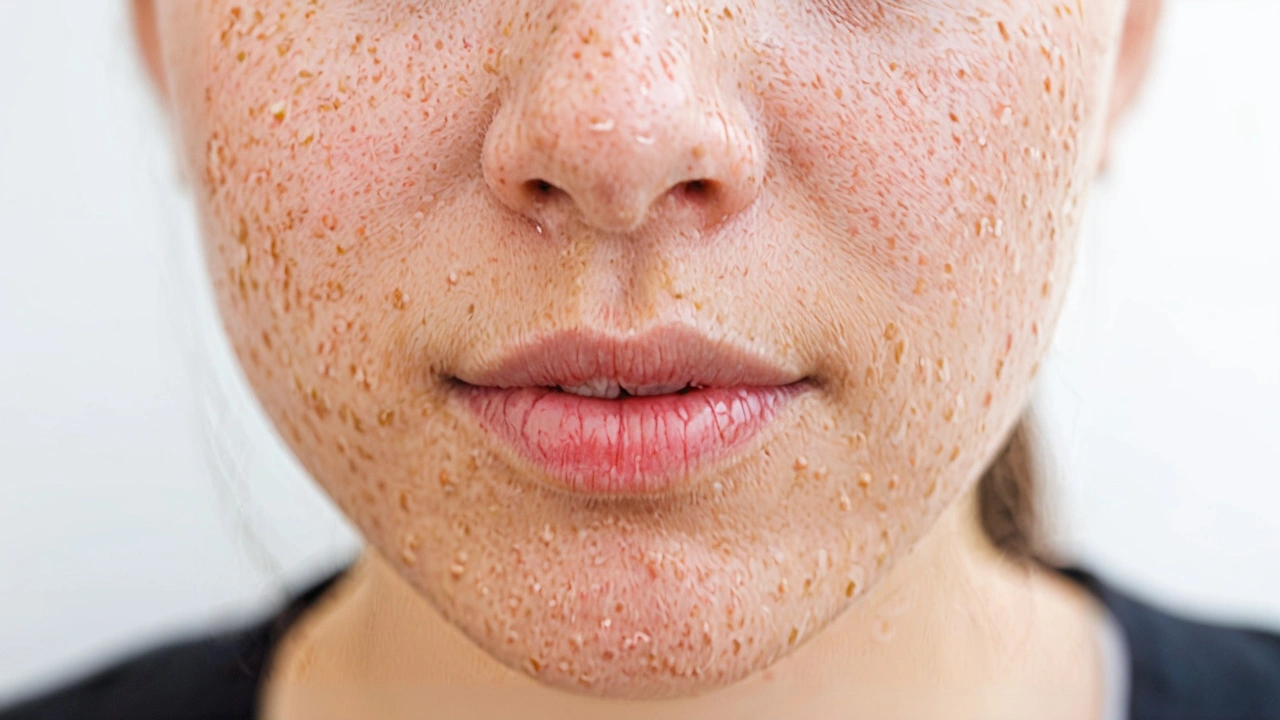July 2024 Health Insights – Isotretinoin Cuts Acne for Trans Patients on Hormone Therapy
Did you know a drug famous for clearing teen pimples is now helping trans folks manage acne while on gender‑affirming hormones? A recent UCLA study published in the Journal of Clinical and Aesthetic Dermatology shows exactly that. If you’ve struggled with breakouts after starting estrogen or testosterone, this news could change how you think about treatment options.
What the UCLA Study Found
The researchers followed 30 transgender participants who were already on hormone therapy and suffering from moderate to severe acne. They gave each person a standard isotretinoin regimen for three months. By the end of the trial, 90% reported a noticeable drop in acne severity, with many saying their skin cleared enough to stop using other topical meds.
What makes this result stand out is that hormone‑induced oil production often fuels stubborn breakouts. Isotretinoin works by shrinking the skin’s oil glands and reducing inflammation, so it directly tackles the root cause in these patients. The study also tracked side effects: most were mild—dry lips, occasional dryness of eyes—and resolved with standard supportive care.
How This Affects Your Acne Care
If you’re on estrogen or testosterone and isotretinoin sounds like a good fit, the first step is a candid chat with your dermatologist. Explain that you’re on gender‑affirming hormones and ask how isotretinoin might interact with your current meds. Doctors usually start with a low dose and adjust based on blood tests for liver function and lipid levels.
While isotretinoin can be powerful, it isn’t a one‑size‑fits‑all solution. Some people prefer to keep using topical retinoids or antibiotics if their acne is mild. But if you’ve tried everything else and still see new breakouts after hormone changes, this study suggests isotretinoin could give you the clear‑skin break you need.
Remember to stay hydrated, use a gentle moisturizer, and protect your skin with sunscreen daily—especially because isotretinoin can make you more sensitive to UV light. Also, avoid vitamin A supplements while on the drug; they can raise the risk of side effects.
Bottom line: The UCLA findings give solid evidence that isotretinoin works well for trans patients dealing with hormone‑related acne. Talk to your healthcare provider about whether this option fits into your treatment plan, and you might be on your way to smoother skin without compromising your gender‑affirming care.

Isotretinoin Proven Effective for Acne in Gender-Affirming Hormone Therapy Patients
Recent UCLA research published in the Journal of Clinical and Aesthetic Dermatology reveals isotretinoin's effectiveness in treating acne among transgender individuals undergoing hormone therapy, showing a significant reduction in acne severity for 90% of participants.
July 31 2024